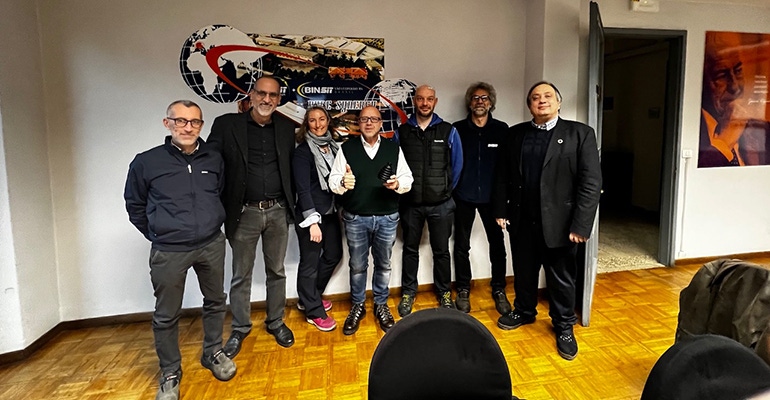Global Automotive Supplier Adds New Materials and Processes to Win Big with OEMs
By switching from press blow molding to injection molding automotive boots and bellows and using a newly developed elastomer, Insit increased productivity and reduced material usage.
July 13, 2023

Under the leadership of owner/president Luigi Galgani, automotive parts manufacturer Insit (Montà, Italy) has long been willing to experiment with new materials and processes. The results have been positive, as the company has expanded its manufacturing network beyond Italy to encompass Brazil and India, thereby supporting its global customer base. The majority of Insit’s business is generated by press blow molding of boots and bellows for the automotive industry. This is complemented by production of injection molded components, which are always processed using materials supplied by Celanese.
In September 2022, Galgani and his leadership team were invited to attend a customer event at the Meyrin, Switzerland, facility of Celanese. There, Galgani and his colleagues learned about a new thermoplastic copolyester (TPC) elastomer, Hytrel HTR8745LV, that enables injection molding of diaphragm boots in multi-cavity molds. For manufacturers, injection molding offers the chance to increase productivity compared with blow molding and to save material by designing more compact bellows.
The team at Insit was very interested and asked the processing and advanced CAE experts at Celanese for support during trials of the material at a new Insit facility in Italy. The trials went so well that Insit introduced the parts to its Tier 1 customer, which also quickly recognized the value of the new material and the positive aspects of injection molded boots and bellows.
Further, validation testing at a Tier 1 parts supplier proved performance of the parts for rear half-shaft drive trains in electric vehicles (EVs), and this Tier 1 has asked Insit to begin commercial supply of the injection molded bellows for new EV models being launched in Europe, with start of production in 2023 and 2024.
“My team is very strong, but we also seek partnerships that bring us even further. The collaboration with Celanese has done exactly that, and helped my company win new business in an exciting and expanding part of the automotive industry,” Galgani commented.
Material savings realized by injection molding of compact boots is one way to improve the sustainability of vehicles. Insit, however, has gone one step further as one of the first manufacturers to have tested and validated the performance of another recent Celanese innovation, Hytrel HTR9223LCF thermoplastic elastomer with a lower carbon footprint.
Typically, 70% or more of a polymer’s global warming potential (GWP) is derived from its monomers. “Hytrel HTR9223LCF is manufactured utilizing monomers with significantly lower GWP,” explained Petros Dafniotis, global Hytrel T&I leader for automotive boots and bellows. A life-cycle assessment indicates that Hytrel HTR9223LCF can reduce GWP by 30% or more per part versus standard Hytrel commercial grades for constant velocity joint (CVJ) boots.
“The automotive industry needs to become more sustainable. We are pleased to be one of the first companies to test and certify the performance of Hytrel HTR9223LCF and look forward to press blow molding the material to help our customers reduce their environmental footprint,” added Galgani.
“The collaboration with Insit is a special one,” explained Fabio Bonfiglietti, the account manager who supports Insit. “Luigi Galgani has a vision for how he wants to run his company, for it to be innovative and to continue improving its sustainability. He keeps us on our toes with new developments, and he supports us when the materials are ready for testing and validation. His is a fun company to support.”
About the Author(s)
You May Also Like




